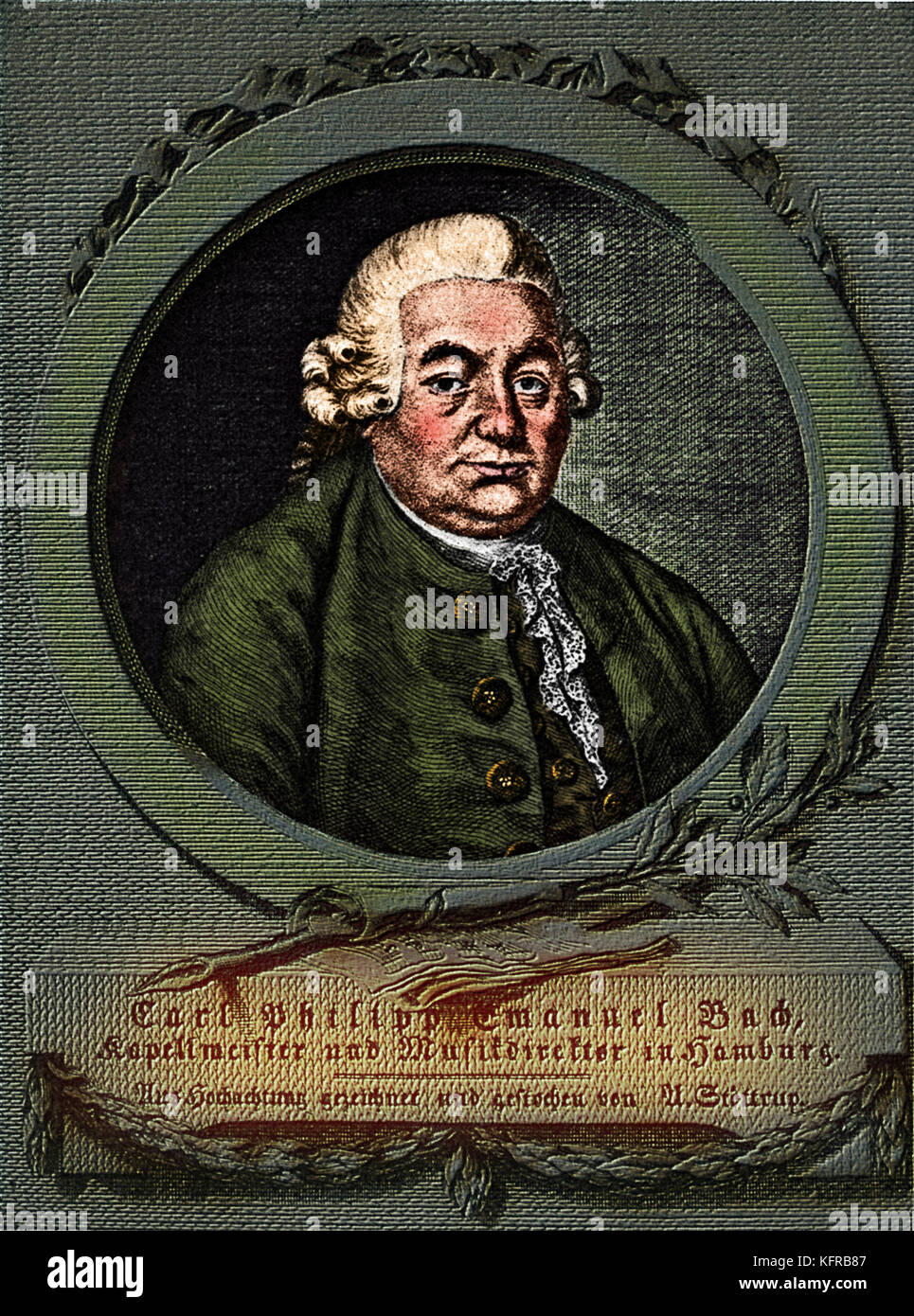

He was by this time one of the foremost clavier players in Europe, and his compositions, which date from 1731, include about thirty sonatas and concert pieces for harpsichord and clavichord.

Upon Frederick's accession in 1740, Bach became a member of the royal orchestra. Berlin years: 1738–1768 Ī few months after graduation, Bach, armed with a recommendation by the Graun brothers ( Johann Gottlieb and Carl Heinrich) and Sylvius Leopold Weiss, obtained an appointment at Berlin in the service of Crown Prince Frederick of Prussia, the future Frederick the Great.

In 1738, at the age of 24, he obtained his degree but never practiced law, instead turning his attention immediately to music. Carl, like his brothers, pursued advanced studies in jurisprudence at the University of Leipzig in 1731 and at Frankfurt-on-the-Oder in 1735. In an age of royal patronage, father and son alike knew that a university education helped prevent a professional musician from being treated as a servant. He was one of four Bach children to become professional musicians all four were trained in music almost entirely by their father. Thomas School, Leipzig, where his father had become cantor in 1723. When he was ten years old, he entered the St. The composer Georg Philipp Telemann was his godfather. Bach was born on 8 March 1714 in Weimar to Johann Sebastian Bach and his first wife, Maria Barbara. His second name was in honor of his godfather Georg Philipp Telemann, a friend of Johann Sebastian Bach.īach was an influential pedagogue, writing the ever influential "Essay on the true art of playing keyboard instruments", which would be studied by Haydn, Mozart and Beethoven, among others. To his contemporaries, he was known simply as Emanuel. Bach was known as the "Berlin Bach" during his residence in that city, and later as the "Hamburg Bach" when he succeeded Telemann as Kapellmeister there. To distinguish him from his brother Johann Christian, the "London Bach", who at this time was music master to the Queen of Great Britain, C. His dynamism stands in deliberate contrast to the more mannered galant style also then in vogue. His personal approach, an expressive and often turbulent one known as empfindsamer Stil or ' sensitive style', applied the principles of rhetoric and drama to musical structures. Bach was an influential composer working at a time of transition between his father's Baroque style and the Classical style that followed it. Carl Philipp Emanuel Bach (8 March 1714 – 14 December 1788), also formerly spelled Karl Philipp Emmanuel Bach, and commonly abbreviated C. P. E. Bach, was a German Classical period musician and composer, the fifth child and second surviving son of Johann Sebastian Bach and Maria Barbara Bach.Ĭ.


 0 kommentar(er)
0 kommentar(er)
